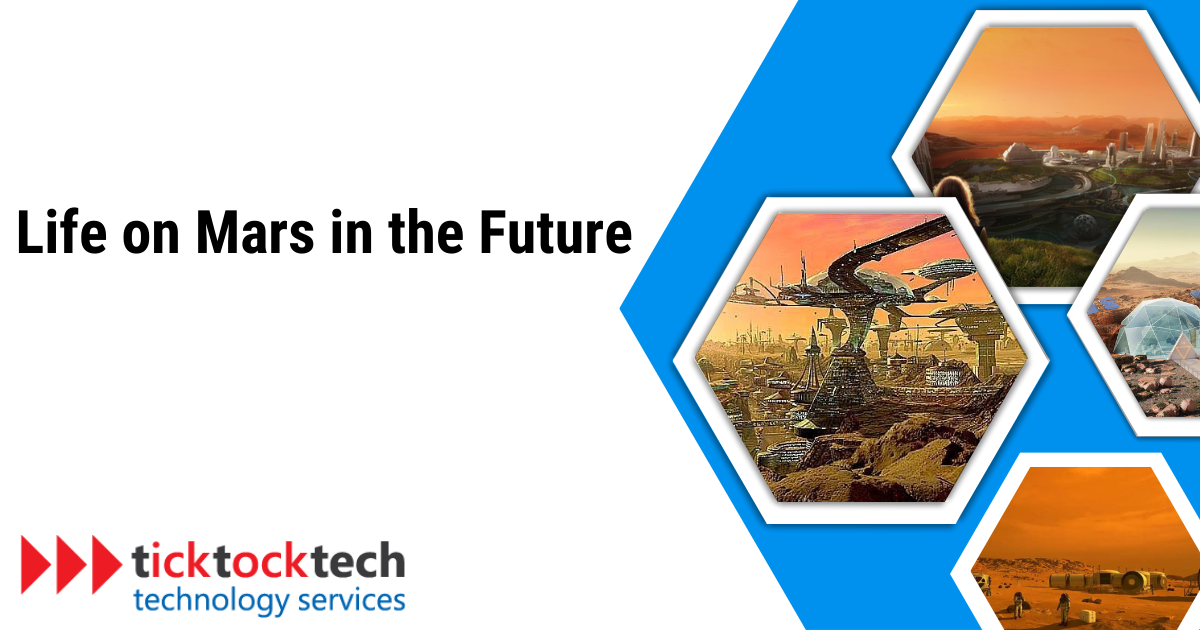The dream of living on Mars has transitioned from the pages of science fiction to the forefront of space exploration reality. With ongoing technological advances, the question arises: Can we live on Mars in the future?
Life on Mars
The red planet, Mars, has fascinated people for a long time. Its beautiful landscapes, along with the promise of new discoveries, make Mars an exciting destination for humans to explore. As we move towards being able to travel from one planet to another, the thought of living on Mars moves from being just an out-of-reach dream to a possibility.
As we come closer to the reality of making Mars our home, let’s explore what life on Mars could be like.
Understanding Mars and Our Search for Life
Our journey to Mars began with telescopic observations, followed by robotic missions that have dramatically increased our understanding of the planet. Missions like NASA’s Perseverance rover have also been beneficial in uncovering Mars’s past, revealing evidence of water-filled craters and potential signs of ancient microbial life. These discoveries lay the foundation for future human missions and give us an idea of what it might be like to live on Mars.

Living on Mars poses significant challenges. The planet’s atmosphere is composed primarily of carbon dioxide, meaning there is very little breathable air for humans. Moreover, the planet’s surface is exposed to harmful radiation from the sun and outer space.
To address these challenges, scientists and engineers are actively developing technologies that can transform Mars into a habitable place for humans. These technologies aim to create a suitable environment by addressing the issues of air quality and radiation protection.
Can We Live on Mars in the Future?
Yes, living on Mars in the future is a possibility. Organizations like NASA and other private institutions are pushing the limits and aiming to establish a base on the moon within the next few decades. This achievement would set the stage for future missions to Mars.
The future of Mars looks promising, with plans for humans to explore and potentially live there. The goal is not just to visit Mars temporarily but to establish a permanent presence. There have been proposals to terraform Mars, which means modifying its environment to resemble Earth’s. However, these ideas are still speculative and face various technical and ethical challenges. The key to terraforming lies in warming the planet and thickening its atmosphere, potentially unlocking the ability to grow food and access water in liquid form.

Colonizing Mars successfully will depend on advanced technologies and the resilience of humans. Scientists and engineers are working on innovative solutions such as habitats that protect against radiation and systems for growing food in Martian soil. Moreover, adapting, exploring, and thriving in new and challenging environments will be crucial for future Martian residents.
In addition, colonizing Mars won’t be something one country or company can do alone. It will likely need countries and institutions to work together. Sharing resources, knowledge, and the benefits of exploring Mars will be key. This teamwork will make sure that exploring Mars helps everyone on Earth.
Life on Mars in the future
Imagine a future where humans live on Mars. At first, staying alive will be the main focus. People will live in special homes designed to protect them from harmful space radiation and provide them with air and water they can use. As technology gets better, and we find more resources, these small communities could grow. Life on Mars would become more varied and comfortable for everyone living there.
Going to Mars would also create new chances for jobs and discoveries. We could start mining to get valuable minerals that we could use both on Mars and back on Earth. Scientists would also work on more discoveries, including the possibility of life on other planets.
Frequently Asked Questions
Conclusion
The journey to making Mars a second home for humanity is filled with challenges and exciting possibilities. Although the goal may seem far away, every space mission helps us learn more about what living on Mars would need. For more insights into space exploration and the future of living on Mars, visit NASA’s official website.

